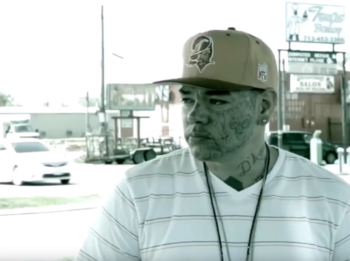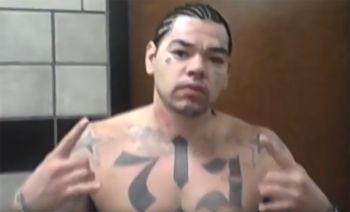
By Michael Ashcraft —
Incarcerated for a schoolyard murder, 12-year-old Ronnie Legg was told by a psychologist that there was no forgiveness available to Him from God.
“I was like, ‘Wow, I’ll never be able to get into Heaven,” he says on a video published by a Texas outreach group. “I might as well be the devil’s #1. As soon as I was found guilty and sentenced to 21 years, I started pushing hard to try to do the devil’s work. I was pushing hard to be the ultimate gangster.”
Ronnie’s troubles began early: a single mom, abused as a tyke, living in poverty. For selling drugs on the wrong street in East Houston, his brother was killed. Nine-year-old Ronnie followed in his footsteps with drinking and smoking dope.
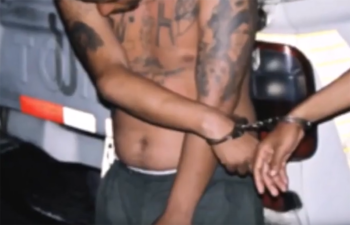 His mother, brokenhearted at the loss of one son, steeled her heart against what she thought was the inevitable demise of Ronnie.
His mother, brokenhearted at the loss of one son, steeled her heart against what she thought was the inevitable demise of Ronnie.
“There’s no more love here for you because you’re going down the same path your brother went down,” his mom told him. “You ain’t going to do nothing different, so I’ll be danged if you break my heart.”
Ronnie responded to the rejection by throwing the first object he could find at her.
“I hate you,” he yelled.
At age 12, he was on the schoolyard when a group of young gangsters tried to jump him. But they didn’t count on Ronnie being armed and he shot three of them, killing one. He was arrested four days later. Even without a jailhouse confession, prosecutors secured a conviction.
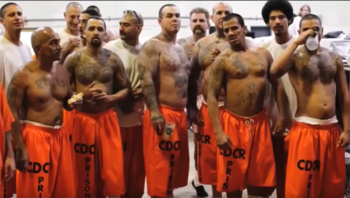 By age 15, he was in the penitentiary because he was so dangerous. While there, he joined the Houstone Blast gang and fought every day to make a name for himself.
By age 15, he was in the penitentiary because he was so dangerous. While there, he joined the Houstone Blast gang and fought every day to make a name for himself.
“As I started doing that, everybody was patting me on the back,” he recalls on the Mobbin for Christ video.
Released from prison, he trafficked dope, pimping and kidnapping in Houston.
In December 1999, the Feds tracked him down. It seems his best friend snitched on him. Sentenced to 72 months, he got into trouble in prison so much that his sentence was lengthened to 9 years and 4 months and then into 12 years.
“I ended up walking around some of the worst prisons in the whole United States,” he says. He was in Beaumont prison during the racial riots. He was transferred to Oklahoma and then to Pollack, Louisiana. Of 100 Texans in Pollack, only he and another survived.
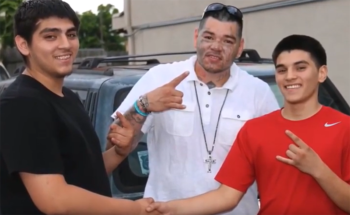
Ronnie eventually was transferred to a Death Row penitentiary in Indiana. In Victorville penitentiary, he was thrown in with the Crips and Bloods. It didn’t matter to him that he was the only Houstone. Almost immediately, he stabbed someone on the yard.
Finally, he was transferred to the “Alcatraz of the Rockies” in Florence, Colorado, the “worst of the worst. Everybody there is a killer. Three people a day get stabbed,” Ronnie says.
When he was admitted, the warden gave him one warning:
“All I ask is that you don’t put no steel in my officers.”
When he was finally released, Ronnie went home and immediately resumed drug trafficking.
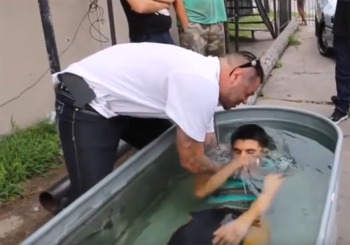
He got busted for a crime he didn’t commit.
Meanwhile, his son was shaken by a friend who committed suicide and turned to drug abuse.
“The whole time I had it in my head that I was glad that I was not in my kid’s life because I might have messed him up even worse,” Ronnie says.
Then his son’s mom died.
When the chaplain broke the news to jail-bound Ronnie, he realized his kids were suffering.
The chaplain wanted to talk to him about God, but Ronnie told him he was unforgivable because of his murder case as a child.
“Who told you you’re unforgivable,” the chaplain responded. “I know who they say you are, but who does God say you are?”
Ronnie was intrigued, but he still kept up his disinterested tough guy facade.
As Ronnie left, the chaplain asked him: “What does Game Over mean?”
Ronnie had “Game Over” tattooed on his knuckles.
It turns out that the chaplain had received a prophecy that his next disciple would be “Game Over.”
‘So I started reading the Bible,” he says. “I started learning who Saul was, a persecutor of Christians, how he became Paul.”
He realized he could be forgiven.
“All the years I stayed gang-banging, all the years that everybody said they loved me for selling drugs and riding with them with these cars, rims and women, I still had a void,” he recalls.
Reading the Word filled the void.
Ronnie finally got his case dismissed and was released. He hooked up with a street evangelism movement made of former gangsters and Christian rappers with the likes of Sevin and Pyrexx. He began testifying in concerts and knocking on doors to evangelize.
Now the man known as Sir Sonic on the street is pushing Jesus with wayward young people.
“I can’t do it on my own,” he says. “I need a band of Christians who are going to ride tough with me, the same way I had a team of dudes willing to drag me down, I now have Christian brothers who are involved in ministry and aren’t scared to knock on doors and tell somebody something positive.”
Ronnie shares in schools, where he warns young men about the danger of gangs and drugs. He’s now saving souls instead of killing them.
“God’s taking my mess and turned it into such a powerful message,” he says. “All things are created new in the Lord.”
If you want to know more about a personal relationship with God, go here
Michael Ashcraft teaches journalism at the Lighthouse Christian Academy in Santa Monica

